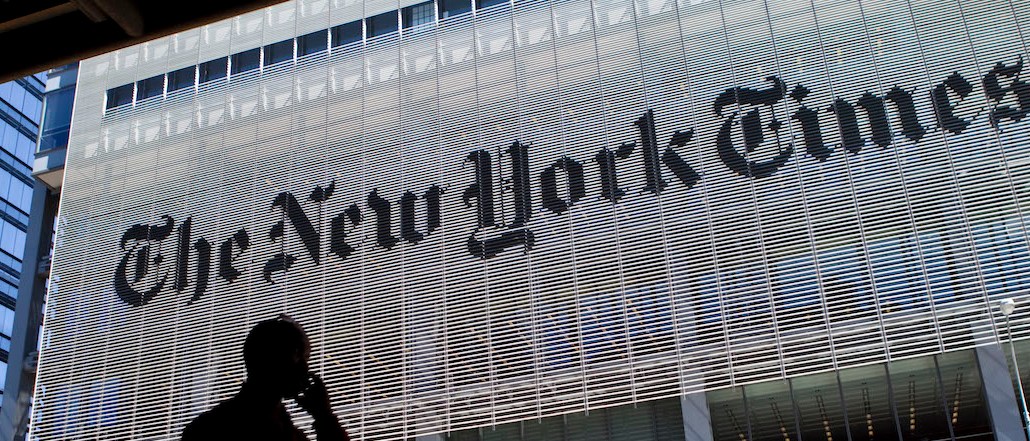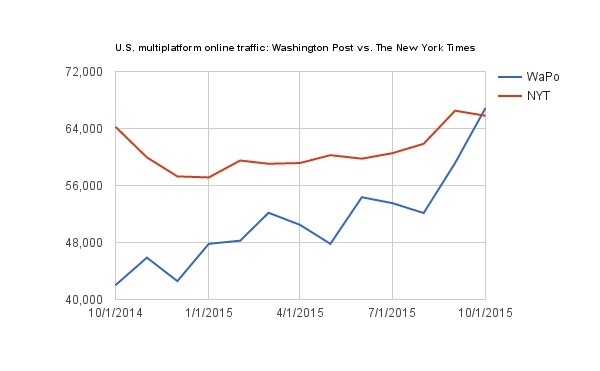Secure your place at the Digiday Media Buying Summit in Nashville, March 2-4

More people visited the Washington Post’s website than The New York Times’ in October, marking a significant milestone in the battle for old guard supremacy in online media.
Last month, the Washington Post raked in 66.9 million multi-platform unique visitors narrowly edging out the New York Times, which recorded 65.8 million uniques, according to comScore. It’s the Post’s highest trafficked month since at least Oct. 2014, representing a 59 percent increase in less than a year.

For the Times, traffic dipped slightly from September (66.5 million) with traffic largely stagnating over the past two years. Still, it was the Times’ second-highest month buoyed by viral pieces Miranda July’s interview with Rihanna and the lengthy, moving feature “The Lonely Death of George Bell.”
The New York Times, according to a Politico New York piece from August, has been worried about the Post’s growing digital dominance, propelled by its ever growing selection of viral-focused blogs and a faster loading website. In response, the Times is building out its own “digital rewrite team” called the Express in an effort to capture some viral traffic.
Just two months ago, Politico asked “could the Post top the Times in unique visitors by this time next year?” The answer is yes (and much sooner!), but now the question is, will it last?
More in Media

From feeds to streets: How mega influencer Haley Baylee is diversifying beyond platform algorithms
Kalil is partnering with LinkNYC to take her social media content into the real world and the streets of NYC.

‘A brand trip’: How the creator economy showed up at this year’s Super Bowl
Super Bowl 2026 had more on-the-ground brand activations and creator participation than ever, showcasing how it’s become a massive IRL moment for the creator economy.

Media Briefing: Turning scraped content into paid assets — Amazon and Microsoft build AI marketplaces
Amazon plans an AI content marketplace to join Microsoft’s efforts and pay publishers — but it relies on AI com stop scraping for free.





